Politics and Government: Zionism
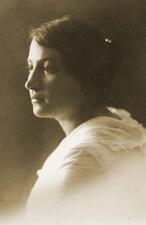
Sarah Aaronsohn
A leading spy for the Nili ring during World War I, Sarah Aaronsohn fought to free Palestine from Turkish rule and withstood torture for her ideals; she committed suicide after arrest by Turkish authorities and was later described as a Jewish Joan of Arc. The semi-military role Sarah carved for herself, her activity, and her voluntary death made her an icon and a model of a new “Hebrew” femininity.
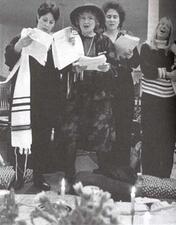
Bella Abzug

Nima Adlerblum
Nima Adlerblum was a writer, educator, and early Zionist activist in New York, whose life began and ended in Jerusalem. She wrote widely on philosophy, education, Jewish philosophy, and American history, and also founded Hadassah’s national cultural and educational program in addition to serving as its national and cultural chair from 1922 to 1935.
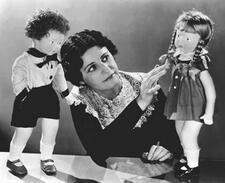
Beatrice Alexander
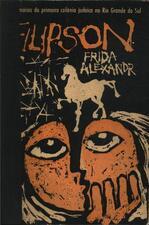
Frida Alexandr
A Brazilian-born daughter of immigrants, Frida Alexandr was the only woman writer to describe Jewish cowboys in Brazil from the viewpoint of one who lived among them. Her only published book was the novel Filipson, which chronicled the lives and episodes of the farm where she was born in 1906 and spent two decades of her life.
Ruth Aliav-Klüger
Ruth Aliav-Klüger was the only woman among the early members of Mosad le-Aliyah Bet, the “illegal” immigration branch of the underground paramilitary organization Haganah that smuggled Jews out of Europe and into Palestine during World War II.
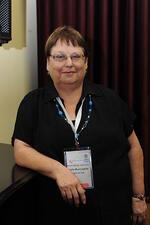
Hedva Almog
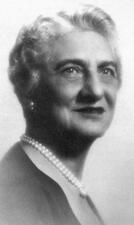
Rose Haas Alschuler
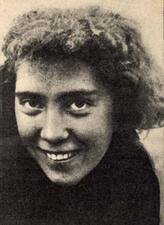
Tosia Altman
Tosia Altman played important roles in the Jewish resistance to the Nazis. Her pale skin and blonde hair allowed her to blend in and serve as a spy, and she was integral to the 1943 Warsaw Ghetto Uprising.
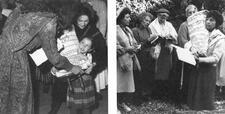
American Jewish Congress
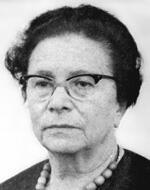
Anda Pinkerfeld Amir
Anda Pinkerfeld-Amir was a Zionist poet, and author whose works reflected the tension between Judaism and feminism in the early twentieth century. In her youth, she was a member of Ha-Shomer ha-Za'ir in Poland, and in 1920 she immigrated to Palestine to write Hebrew verse. She is best remembered as a children’s writer who tackled complex topics with humor and compassion.
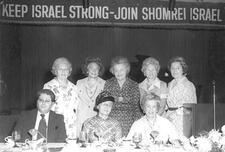
AMIT
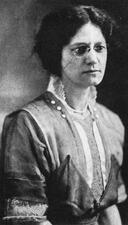
Mary Antin

Shoshana Arbeli-Almozlino
From her upbringing in a traditional Iraqi family to her work in the Knesset and as Israeli Minister of Health, Shoshana Arbeli-Almozlino’s life spanned countries, careers, and experiences. She will be remembered as an active member of Knesset who fought for the rights of the working class and for the equal status of women in Israeli law.

Architects in Palestine: 1920-1948
The mass immigration from Europe after 1933 brought many architects to Palestine, amongst whom were a number of women. For these women, being an architect meant total devotion to the profession.

Argentina: Sephardic Women
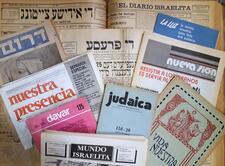
Argentina: Zionist Activities
Associazione Donne Ebree D'Italia (ADEI)
The Association of Italian Jewish Women, or ADEI, was founded in 1927 in the city of Milan, Italy, home to the second largest Jewish community in the country.
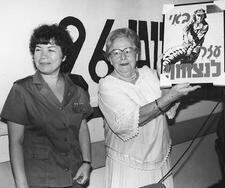
ATS and WAAF in World War II
During World War II, only when the Yishuv’s Council of Women’s Organizations called for the recruitment of women was an agreement reached with the British authorities to enlist women living in Palestine into the forces. The first to join were in the ATS (Auxiliary Territorial Serivce) followed by the WAAF (Women’s Auxiliary Air Force).

Australia: 1788 to the Present
The first Jewish women, like the first Jewish men, arrived in Australia on the very first day of European settlement in 1788. Those convict pioneers were followed by free settlers who made Jewish communal and congregational life viable and helped to develop the vast continent. Jewish women have made significant contributions to Australia's national story.
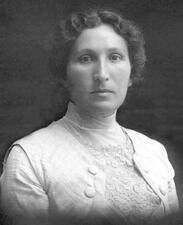
Sara Azaryahu

B'nai B'rith Women
Created at the beginning of the twentieth century, B’nai B’rith Women expanded its role during both World Wars. Although gender roles after World War II reverted to a more conventional structure, in the 1960s BBW shifted its efforts to reflect the antipoverty and feminist campaigns of the period.
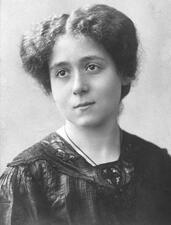
Bertha Badt-Strauss
A religious German-Jewish writer, intellectual, and ardent Zionist, Bertha Badt-Strauss was one of the first women to earn a doctoral degree in Prussia. She was a prolific writer, publishing hundreds of articles over the course of her lifetime, and was very involved in the “Jewish Renaissance” cultural movement. She was dedicated in particular to illuminating the diverse experiences of Jewish women past and present.

Miriam Baratz
Miriam Baratz was a founding member of Deganyah Aleph, the first socialist Zionist farming commune in pre-state Israel. She advocated for communal childcare and education, and for a cooperative and egalitarian economic structure. The gender paradigm she helped establish at Deganyah set a precedent of egalitarianism for the entire kibbutz movement.
Hannah Barnett-Trager
Hannah Barnett-Trager’s involvement in the literary world began when she helped found and then worked as a librarian at the Jewish Free Reading Room in London. She published her first article in 1919 and went on to write books for both children and adults. Trager’s writing discussed Jewish culture and politics, often drawing from her own experiences.


